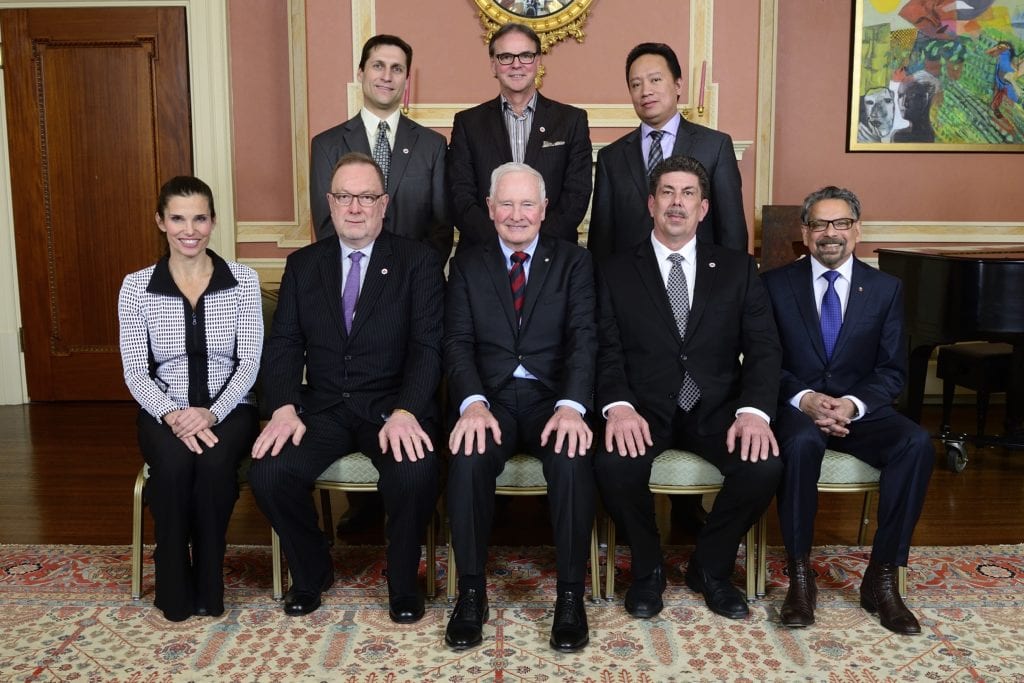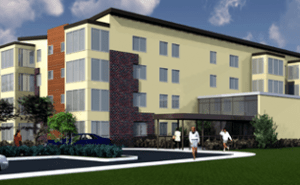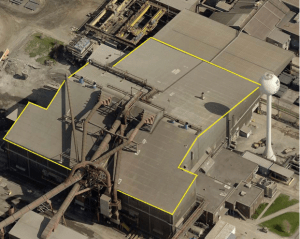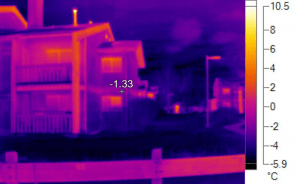Spilling the Beans: RRC featured in Canada’s Food & Beverage Processing Magazine

RRC Culinary students at tasting perogies made with bean flour.
For the past two years, research chefs with RRC’s Advanced Culinary Research program have been developing new applications and recipes to show the versatility and nutritional benefits of pulses. Pulses are edible dry legume seeds such as lentils, dry peas, dry beans, and chickpeas. They provide non-animal protein, fibre, and complex carbohydrates which play a role in weight management, maintaining good cholesterol levels, and provide a good nutritional boost to many foods.
Through funded research projects with industry partners such as Manitoba Pulse and Soy Growers Association (MPSG), Best Cooking Pulses, and a variety of small start-up ventures, the chefs have reformulated dishes to incorporate pulses in non-conventional ways. A number of these dishes have been consumer tested at PGI with excellent results. Research funding has been provided by NSERC, IRAP, and the MPSG research funds. With International Year of Pulses wrapping up in December 2016, the Culinary Research team can be proud of their role in increasing pulse consumption for the health of consumers in North America.
To learn more, download the publication: http://blogs.rrc.ca/ar/wp-content/uploads/2016/08/spilling-the-beans.pdf

 Transforming students, faculty, staff and clients through education, partnerships, entrepreneurship and applied research has been Mark’s focus since joining the college sector in 2007. This has been accomplished by developing strong internal and external networks with creative, driven and passionate people; leveraging the expertise of faculty and staff; engaging students in addressing real-world problems and opportunities; and collaborating closely with industry, government and community organizations.
Transforming students, faculty, staff and clients through education, partnerships, entrepreneurship and applied research has been Mark’s focus since joining the college sector in 2007. This has been accomplished by developing strong internal and external networks with creative, driven and passionate people; leveraging the expertise of faculty and staff; engaging students in addressing real-world problems and opportunities; and collaborating closely with industry, government and community organizations.

 As more research is being performed and more knowledge is being shared about the importance of managing and controlling air leakage within the building envelope, leaders in the building design industry are stepping forward to collaborate with BETAC to ensure their structures are performing as they are meant to.
As more research is being performed and more knowledge is being shared about the importance of managing and controlling air leakage within the building envelope, leaders in the building design industry are stepping forward to collaborate with BETAC to ensure their structures are performing as they are meant to. BETAC is working in conjunction with Hatch’s Structural Consultant in Winnipeg for Gerdau Ameristeel Corporation. Gerdau is undertaking a major renovation of one of its buildings, the Melt Shop Facility at its Manitoba Mill located in Selkirk, MB.
BETAC is working in conjunction with Hatch’s Structural Consultant in Winnipeg for Gerdau Ameristeel Corporation. Gerdau is undertaking a major renovation of one of its buildings, the Melt Shop Facility at its Manitoba Mill located in Selkirk, MB. The research undertaken by BETAC addressed the building and material science uncertainties created by the extreme conditions from the industrial process and Manitoba climate.
The research undertaken by BETAC addressed the building and material science uncertainties created by the extreme conditions from the industrial process and Manitoba climate. BETAC worked with Synyshyn Architecture to support and further their evaluation of the building envelope system for The Ladco Lakepointe Apartments located in southeast Winnipeg.
BETAC worked with Synyshyn Architecture to support and further their evaluation of the building envelope system for The Ladco Lakepointe Apartments located in southeast Winnipeg.
